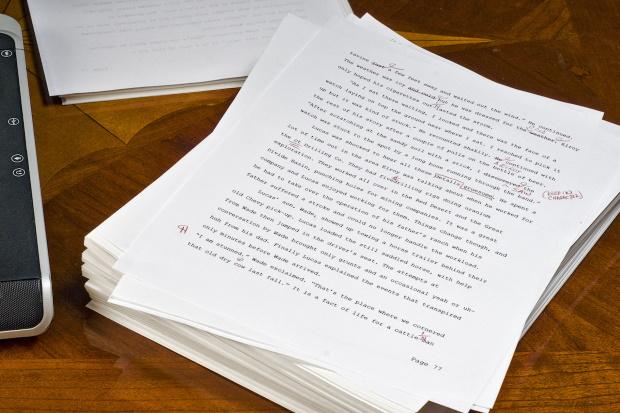Mastering English Editing: Tips for Polishing Your Text
- March 13, 2025
- Posted by: Yury Subachev, PhD
- Categories: For young scientists, Paper writing
-
Post Views: 409

In today’s globalized world, the ability to communicate effectively in English is more important than ever. Whether you’re crafting an academic paper, a business proposal, or a creative piece, the quality of your written English can make or break your message. Mastering English editing is a skill that goes beyond correcting grammar and spelling—it’s about refining your text to ensure clarity, coherence, and impact. This article will guide you through the essentials of English editing, offering practical tips and insights to help you polish your writing to perfection.
What is English Editing?
English editing is the process of reviewing and improving a written text to enhance its readability, accuracy, and overall quality. It involves not only fixing grammatical errors and typos but also restructuring sentences, improving word choice, and ensuring the text flows logically. Editing is a critical step in the writing process, as it transforms a rough draft into a polished, professional piece of work.
Mastering English editing requires a keen eye for detail, a solid understanding of grammar and style, and the ability to view your writing from the reader’s perspective. It’s a skill that can be developed with practice and the right techniques.
1. Key Features of Effective English Editing
- Grammar and Spelling: The foundation of any well-edited text is error-free grammar and spelling. Tools like Grammarly or Hemingway can help, but nothing beats a thorough manual review.
- Clarity and Conciseness: Eliminate unnecessary words and phrases to make your writing more direct and impactful. Avoid jargon or overly complex sentences that might confuse the reader.
- Consistency: Ensure consistency in tone, style, and formatting throughout your text. This includes maintaining the same tense, voice, and punctuation rules.
- Flow and Structure: A well-edited text has a logical flow. Paragraphs should transition smoothly, and ideas should be presented in a coherent order.
- Audience Awareness: Tailor your language and style to suit your target audience. What works for an academic journal may not be appropriate for a blog post or marketing copy.
2. Tips for Mastering English Editing
- Take a Break Before Editing: Step away from your text for a few hours or even days. Returning with fresh eyes will help you spot errors and areas for improvement more easily.
- Read Aloud: Reading your text aloud can help you identify awkward phrasing, run-on sentences, and areas where the flow feels off.
- Use Editing Tools Wisely: While tools like spell checkers and grammar apps are helpful, don’t rely on them entirely. They can miss context-specific errors or suggest changes that don’t fit your tone.
- Focus on One Aspect at a Time: Break your editing process into stages. For example, focus on grammar and spelling first, then move on to clarity and structure.
- Get a Second Opinion: Ask a colleague, friend, or mentor to review your text. A fresh perspective can catch mistakes you might have overlooked.
- Learn from Feedback: If you’ve worked with an editor before, pay attention to the changes they made and use that feedback to improve your self-editing skills.
3. Why Mastering English Editing Matters?
Mastering English editing is not just about producing error-free text—it’s about ensuring your message is clear, compelling, and professional. Poorly edited writing can undermine your credibility, confuse your audience, and weaken your argument. On the other hand, a well-edited text demonstrates attention to detail, respect for your readers, and a commitment to quality. For those who want to take their editing skills to the next level, professional editing and proofreading services can provide expert guidance. At English Proofreading Experts, we offer specialized services to help you refine your text and achieve the highest standards of written English.
Mastering English editing is a valuable skill that can elevate your writing and enhance your communication. By focusing on grammar, clarity, consistency, and flow, you can transform your text into a polished, professional piece that resonates with your audience. Whether you’re editing your own work or seeking professional assistance, the effort you put into refining your writing will pay off in the form of clearer, more impactful communication. Remember, great writing is not just about what you say—it’s about how you say it. With the right techniques and a commitment to quality, you can master the art of English editing and take your writing to new heights.
How useful was this post?
Click on a star to rate it!
Average rating 5 / 5. Vote count: 14
No votes so far! Be the first to rate this post.
